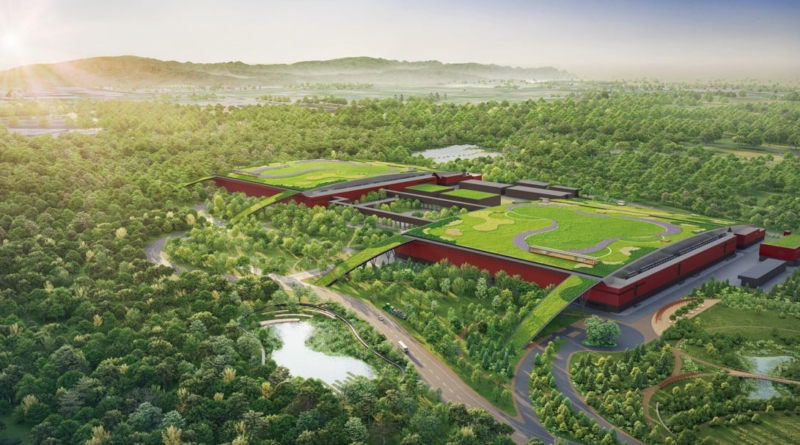Japan's Rapidus fab to compete with TSMC, Samsung for 2nm chips – FierceElectronics
Rapidus remains on track to produce 2nm process node advanced chips in early 2027 at a state-of-the-art facility now under construction in Hokkaido, in northern Japan. Funding includes $6.1 billion from the government of Japan and additional billions from investors, including SoftBank, Sony and Toyota and a technology collaboration with IBM.
“Everything is on time with first quarter 2027 production, ready for the 2nm node,” said Henri Richard, president and general manager of the Rapidas Design Solutions, recently opened in Santa Clara, Calif. The long-time semiconductor executive spoke last week with Fierce Electronics after coming out of retirement to join Rapidus.
“The entire industry wants and needs” 2nm production, Richard said. “There’s not enough capacity. It’s very clear. Geopolitical concerns are very dramatic and national security is a topic for many companies.”
Rapidus—like its name—seemingly sprung up from nowhere after its establishment in August 2022, the same month President Biden signed into law the CHIPS and Science Act now being used to dole out multibillion dollar grants for domestic chip fabs to likes of Intel, TSMC, Samsung, GlobalFoundries and Micron.
RELATED: Micron preliminary CHIPS grants of $6.1B confirmed for DRAM fabs
Rapidus represents the first time the nation of Japan will have a semiconductor fab in operation on the island nation in 25 years, Richard said. Japanese government leaders and the group of eight private investors behind Rapidus realized, just as their American counterparts did, that chip production must be diversified across geographies, especially to relax the pressure on production at TSMC on Taiwan, which is under constant threat of takeover by China, according to US government officials.
“TSMC is doing a great job and is the 800-pound gorilla,” he said. TSMC, along with South Korea’s Samsung and Intel of the US, a recent entrant in the foundry market, Rapidus offers a fourth alternative in a few short years. “If you are semiconductor company, you will have a group of four foundries and can get the best of any world you want to get to,” Richard said.
“Even our competitors are hoping for a balance of geopolitical risks, and our traditional respect for Japanese quality and detail and discipline,” Richard said.
Richard spends much of his time speaking with potential clients, including traditional CPU and GPU makers, but also AI startups and other companies designing chips for edge computing. “We need partners who will ramp with us,” he said. “There’s strong interest. We need to find the right balance [of customers] as we ramp this massive fab and we need partners that will ramp with us.”
Reports have indicated Canadian startup Tenstorrent is contracted with Rapidus to produce next-generation AI chips based on RISC-V, but Tenstorrent has not confirmed the contract, per se, only that it plans to work with Rapidus “with an ambitious goal to achieve the world’s best cycle time reduction services.” Tenstorrent noted that Rapidus plans to serve clients with wafer processing as well as advance packaging which is “well aligned with Tenstorrent’s direction.”
When Rapidus was established in 2022 by eight Japanese companies, their total investment as reported by EE Times Japan was 7.3 billion yen. With $6 billion in government funds added in, it appears the project is well-financed to reach production, according to reports.
The fab, under construction since September near a new Chitose Airport in Hokkaido, is being hailed for its commitment to the environment, with a roof made entirely of grass and other plantings. It will use very little water and artificial light and will rely on 100% renewable energy “as a starter,” Richard said. “Beyond the fab, it will have the most advanced technologies and capabilities. We will be green, if not the greenest fab starting from scratch.”
Rapidus will eventually make semiconductors based on more than 2nm process nodes for customers, Richard said, but 2nm seems to be the main selling point and makes it a strong competitor with Intel, Samsung and TSMC. Competition with TSMC and Samsung will be tough, with both bringing 2nm to market in 2025.
IBM is working with Rapidus with engineers in Albany, New York, on development of 2nm using nanosheet gate-all-around FET (GAA FET) that IBM first announced in 2021. Reports indicated the 2nm node chip will have 45% improved performance and use 75% less energy when compared wo 7nm chips on the market in 2022.
In addition to its advantage working with IBM, the Rapidus fab will incorporate chip production as well as advanced packaging and test capabilities. Japan currently is home to about half the world’s advanced packaging companies, but having that capability combined with chip production will speed up production cycles, Richard predicted.
About 200 engineers are working together with IBM in Albany, Richard said. In Japan, he predicted Rapidus will face “no problem” hiring talent. “If you are a young Japanese engineer, this is where you want to go.”
